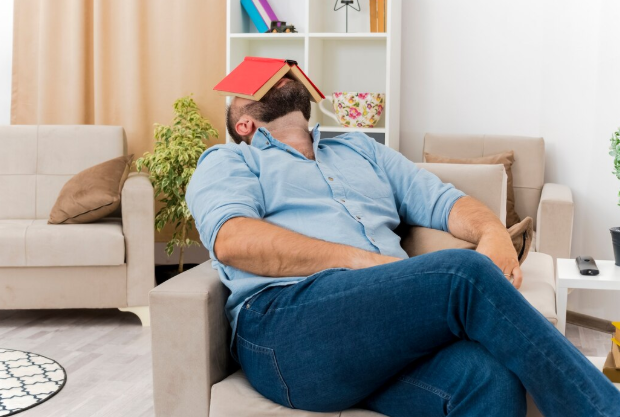Personalized strategies and treatment can help you thrive — let’s explore your options.
Offering guidance and support every step of the way.
Book Now
Living with ADHD as an adult is tough. It’s something that you may not always talk about, but you feel it every day. From the constant distractions to the overwhelming anxiety that comes with forgetting things, it can feel like you’re fighting against your own brain. Managing adult ADHD is not just about surviving; it’s about learning how to succeed, even with ADHD. And we’re here to help you navigate that journey.
At Transcending Psychiatry, we know how frustrating ADHD can be. But we also know that you don’t have to do it alone. Whether you’re newly diagnosed or have lived with ADHD for years, we’re here to support you. It’s time to stop feeling like you’re failing and start feeling like you’re in control of your life again.
ADHD in adults isn’t just about being “forgetful” or “disorganized.” It’s about living with a brain that doesn’t always cooperate with the demands of the world around you. It’s the constant frustration of having every intention of being organized, only to realize at the end of the day that your tasks are still incomplete. It’s trying to focus at work, but your mind drifts off to a million different things none of which are the task at hand.
For some of us, it’s been a lifelong struggle to find a rhythm that works. And we get it. Adult ADHD doesn’t always get the attention it deserves. It’s easy to think you’re just not trying hard enough, but we’re here to tell you: It’s not you, it’s your brain. ADHD affects how you process information, how you focus, how you manage your time, and even how you react emotionally.
This understanding is the first step in coping with ADHD. ADHD is not a reflection of your intelligence or work ethic it’s just the way your brain is wired, and with the right strategies for adults with ADHD, it’s completely manageable.
The first thing we need to do when managing ADHD is recognize the triggers that set off your symptoms. For many of us, these triggers are subtle, yet they have a massive impact. Some common ADHD triggers in adults include:
Stress: When stress levels rise, focus goes out the window. Whether it's a looming deadline or a chaotic home environment, stress can easily make ADHD feel more overwhelming.
Lack of sleep: If you’re not sleeping well, ADHD symptoms will amplify. A lack of rest leaves you feeling scatterbrained, irritable, and drained.
Overstimulation: ADHD thrives in cluttered, distracting environments. Whether it’s too many people talking around you or your workspace being full of papers and gadgets, external chaos leads to internal chaos.
Recognizing these triggers is vital for understanding adult ADHD. Once we know what sets us off, we can build strategies to minimize their impact. For example, if you’re in a high-stress environment, you can use relaxation techniques to calm your mind. If sleep is a problem, prioritizing a sleep routine can go a long way in helping you feel rested and ready for the day.
Managing adult ADHD doesn’t mean doing it perfectly. It means finding what works for you and sticking with it. We know that every person with ADHD has different struggles, but there are a few common strategies that can help make daily life feel more manageable.

Time management for ADHD adults doesn’t have to be complicated. It’s about creating a system that fits your unique brain a system that doesn’t feel overwhelming but still keeps you on track.
One technique we’ve found really effective is setting visual reminders everywhere. If you can see it, you’re more likely to remember it. Use sticky notes on your desk, a large wall calendar at home, or reminders on your phone. The goal is to make sure you never forget important deadlines or appointments.
Another simple approach is to use timers. A timer can help you stay focused and manage time in short, controlled bursts. The Pomodoro technique, which involves working for 25 minutes and then taking a 5-minute break, has been life-changing for many adults with ADHD.
ADHD isn’t just a challenge when it comes to focus; it’s also emotionally exhausting. You might find yourself overwhelmed by tasks, stressed about missing deadlines, or even feeling defeated at the end of the day because you didn’t accomplish everything you hoped for. We’ve been there, and it’s tough.
That’s why adult ADHD coping skills should also include emotional self-care. Mindfulness is one of the best tools we recommend. It doesn’t have to be anything fancy; just taking a few minutes in the morning or during breaks to breathe deeply, focus on the present, and ground yourself can reduce anxiety and help clear mental fog.
Physical activity also plays a huge role in managing ADHD. Even a 15-minute walk outside can reduce restlessness, clear your mind, and improve focus. It’s not about hitting the gym for hours; just moving your body regularly can make a world of difference.
One of the most effective ways to manage ADHD in adults is to establish a routine. We understand that creating a rigid schedule can feel suffocating, but it’s about building a framework that supports you without feeling like a prison.
Start by breaking your day into blocks of time dedicated to specific tasks. It can help you avoid procrastination and feel less overwhelmed. Even if you can’t follow the schedule to the letter, having some predictability in your day can reduce the mental chaos.
While medication can certainly help manage ADHD symptoms, it’s not the only option. If you prefer to treat ADHD without medication, there are plenty of effective strategies available.
Cognitive Behavioral Therapy (CBT): This therapy helps you change unhelpful thought patterns and behaviors, enabling you to manage ADHD symptoms more effectively.
Mindfulness and Meditation: These practices help train your brain to stay calm, focused, and present, which is essential for managing ADHD.
Healthy Habits: Regular exercise, a nutritious diet, and consistent sleep hygiene can improve focus and mood.
It’s about finding the right balance that works for your life, and Transcending Psychiatry is here to help guide you through it.

ADHD doesn’t have to be something that holds you back. With the right ADHD strategies, coping skills, and support, you can learn how to cope with ADHD and create the life you want.
At Transcending Psychiatry, we don’t just provide treatment; we offer personalized care that helps you create a lifestyle that works for your brain. Whether through in-person services in New Jersey or Telehealth services in both New Jersey and New York, we’re committed to helping you succeed with ADHD.
Visit Transcending Psychiatry today to explore how we can help you manage ADHD with the care and support you deserve.
Offering guidance and support every step of the way.
Book Now